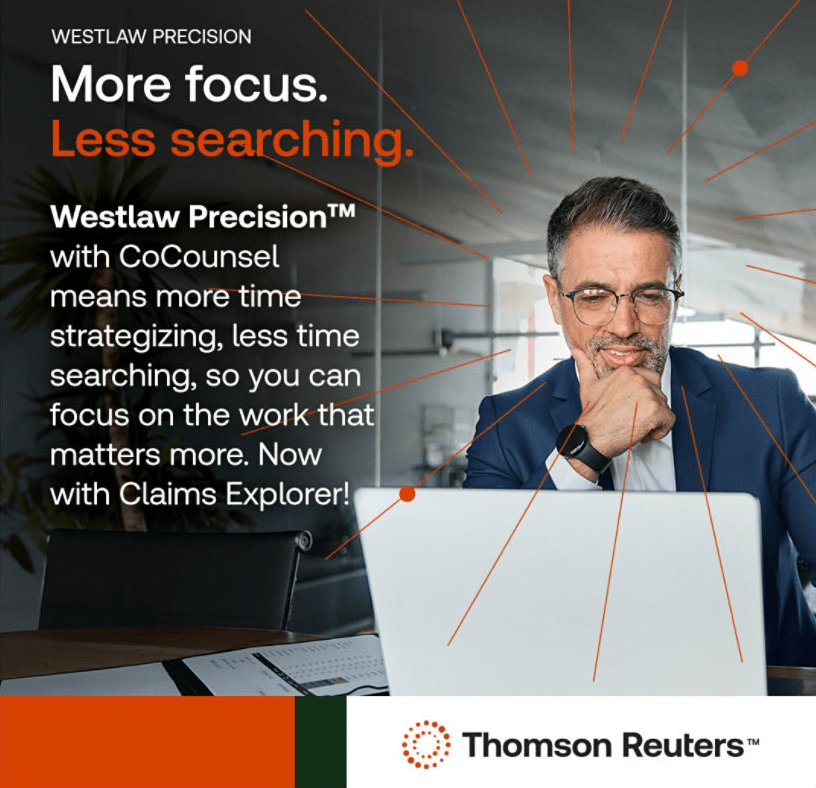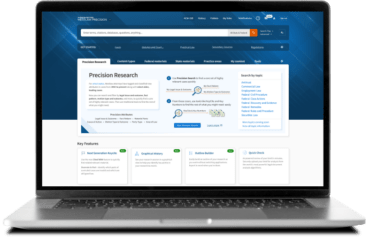Law firm clients expect legal research done on their behalf to be top-notch. And sometimes, they don’t want to pay for the time spent on the research. It’s a catch-22 for legal professionals: your research must be thorough to allow for sound case strategy and documents. But it can’t be excessive, or the client may be disappointed with the invoice.
How do legal researchers walk this tightrope? In the past, they’ve racked up hours and then written them down on the final invoice – impressing clients with their efficiency by cutting their timesheets.
Today’s legal researchers have a better way: using Westlaw Precision with CoCounsel to jumpstart their research. By getting to the right answer faster, they can spend more time on case strategy and crafting their arguments. That, in turn, will help their clients see and experience their legal expertise.
Jump to:
| Building trust in generative AI |
| Impressing clients with your case strategy |
| Aligning with client desires |
Building trust in generative AI
Fully 70% of legal professionals believe AI will have a transformative or high impact on the profession, according to the Future of Professionals report. “Law firms will need to figure out how to marry their own core competencies — trusted expertise — with client needs,” says Zach Warren, Manager of Enterprise Content for Technology & Innovation at the Thomson Reuters Institute.
“The way to do that, of course, is to approach AI not as a replacement for attorney work product, but rather as a base that lawyers can then build upon with their own expertise. Firms exploring AI should be doing so with the goal of providing value on top of what an AI tool can give, rather than simply repeating answers that their clients could find by using AI themselves.”
The Future of Professionals report suggests that lawyers’ risk aversion will slow the adoption of generative AI. That risk aversion could also help ensure that legal researchers are choosing tools that meet their need for accuracy. Choosing tools carefully will help them realize the promised efficiencies.
“Our attorney editors have spent nearly 150 years preparing us for generative AI,” says Erik Lindberg, Senior Director of Westlaw Product Management at Thomson Reuters. “Because of how they have structured our content and added human interpretation to it – really since the first volume of the National Reporter System – we can quickly and reliably generate an answer to nuanced legal questions supported by authoritative search results.”
Impressing clients with your case strategy
With Westlaw Precision with CoCounsel, researchers don’t have to go through dozens or hundreds of related cases, statutes, and regulations because AI does it for them.
Importantly, the AI shows its work: every answer includes a list of footnotes with the language from the supporting authority. This way, researchers can decide if they are satisfied with the response or want to dig further. This is an important feature for risk-averse attorneys who want to be sure they can stand behind the research that informs their case strategy.
Critically, using AI-Assisted Research will save researchers a tremendous amount of time answering legal questions.
With those answers in hand, lawyers can spend more time crafting their case strategy and drafting persuasive documents. Indeed, 40% of legal respondents in the Future of Professionals report noted that their top hope from AI is that it will free them to focus on higher-level tasks by reducing lower-level work.
Aligning with client desires
“Ultimately, law firms will need to align their practices with what their clients desire,” Warren says. “Those clients are looking for more cost-conscious providers: 48% of corporate legal respondents named improving internal efficiency as one of their top 5 strategic priorities, while 39% of clients cited reducing external spend as a top 5 strategic priority.”
One way law firms can delight corporate legal teams is by showing how they help clients manage costs. That might mean shifting to fixed fee arrangements, but it could also mean using tools that increase efficiency without compromising results. They could show a reduction in time spent on legal research and an increase in time spent on case strategy and drafting, for instance.
Westlaw Precision with CoCounsel helps researchers get answers to complex legal questions much more quickly. It shows researchers where those answers come from, so they know they can trust them – and they can explain the authority to their clients. More efficient research supports client goals around managing outside spend, and everyone is happier with more time spent on case strategy. It’s the best of all worlds for law firm attorneys and their clients.
 | Request your free trial todayReady to delight your clients with your legal expertise – supported by efficient legal research? |













